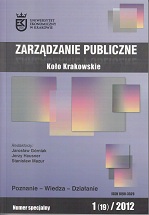Knowledge regimes: How America and Denmark made sense of the stagflation crisis
Keywords:
knowledge regime, stagflation, supply economy, research institutions, knowledge managementAbstract
Ove K. Pedersen and John Campbell examine how policy analysts, experts and others operating in knowledge regimes in the United States and Denmark made sense of the international economic crisis of stagflation in the late 1970s and 1980s and how this influenced their subsequent thinking about their economies. Knowledge regimes are fields of policy research organizations that produce data, analyses, theories and policy recommendations and disseminate this information to policymakers in the hope of influencing public policy. For the authors knowledge regimes are sense-making apparatuses—structures and practices by which people try to understand and find solutions for the nation’s economic problems. The authors have examined the United States and Denmark because these institutions are very different in each country, depending on the political and economic institutions within which they are embedded. The most important insight of the paper is the fact that insofar as economic policy analysis and advising is concerned sense making varies according to how it is organized institutionally. The two knowledge regimes made sense of the stagflation crisis as well as subsequent difficulties in rather different ways with the American knowledge regime becoming more competitive and the Danish knowledge regime becoming more cooperative. In both cases the stagflation crisis caused people to question the conventional ways of making sense of the national economic situation and to make a number of changes.



